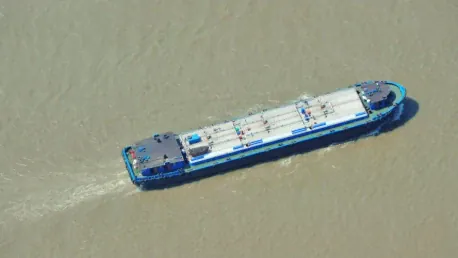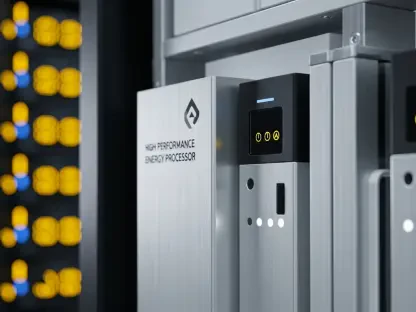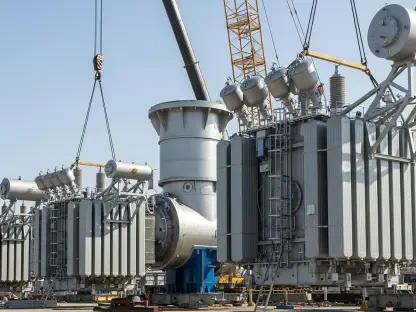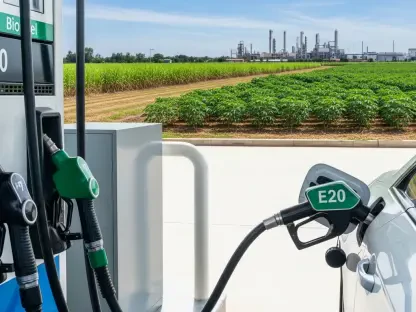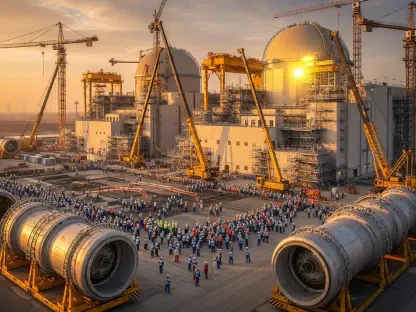The introduction of the new ISO 8217:2024 standards has brought significant attention to the viscosity limits for marine fuels, with a particular focus on Very Low Sulfur Fuel Oils (VLSFOs). These new specifications have revealed a concerning trend: a substantial portion of existing VLSFOs, quantified at roughly 45% of global supplies, are not compliant with the revised RM380 2024 requirements. This insight, drawn from Integr8 Fuels’ Bunker Quality Trends report, underscores the urgent need for fuel suppliers to adjust their blending processes to meet the updated criteria. The ramifications of these necessary changes are complex and far-reaching, potentially mirroring the fuel stability challenges experienced during the IMO 2020 transition. Specific regions, including major bunkering hubs such as Singapore and Houston, have been flagged as significant reformulation zones where a large percentage of VLSFOs currently fail to conform to the new standards.
Regional Impact and Compliance Challenges
The areas identified as particularly problematic under the new ISO 8217:2024 standards—namely, Singapore and Houston—serve as key trading and bunkering hubs, and any disruptions here could have global repercussions. Both the infrastructures of these regions and the practices of the fuel suppliers must rapidly adapt to ensure compliance with the updated viscosity limits. Historically, the IMO 2020 sulfur cap led to substantial market adjustments, and similar issues could arise if the ISO 8217:2024 standards are not swiftly and efficiently adopted. Such broadened non-compliance could lead not only to fuel stability issues but also to operational and safety risks for vessels, necessitating a coordinated response from the entire marine fuel supply chain to curb potential disruptions.
Singapore and Houston are not alone in facing these challenges; other areas are also grappling with their own set of hurdles under the new standards. The report notes a significant issue with sulfur compliance in Southern Europe, where 2.4% of VLSFO supplies have recently exceeded the 95% confidence limits set by ISO 8217 Table 2 parameters. Rotterdam and Balboa have similarly reported heightened non-compliance risks, primarily due to insufficient infrastructure and the continued practice of toggling between High Sulfur Fuel Oil (HSFO) and VLSFO within the same delivery vessels. These regional disparities highlight the necessity for localized solutions and the importance of robust, adaptable compliance strategies to manage the diverse challenges presented by the new standards.
Supplier Adaptations and Strategic Biofuel Bunkering
An essential aspect of navigating the transition to ISO 8217:2024 standards is updating charterparty agreements to reflect the latest requirements. By ensuring that contractual wording mandates compliance with the newest specifications, charterers can mitigate the risks associated with handling non-conforming fuels. Suppliers are then compelled to adhere strictly to the revised standards, promoting more consistent fuel quality across the industry. Strategic thought must also be given to biofuel bunkering as a viable pathway to meeting stringent environmental regulations. Biofuels are increasingly recognized for their potential to reduce greenhouse gas (GHG) intensity, aligning with initiatives like FuelEU Maritime, which advocates for lower-emission fuels.
Managing biofuel use effectively requires a comprehensive approach at the fleet or pool level. By opting to purchase larger quantities of biofuels for select vessels, companies can ensure compliance while balancing operational costs. This strategy allows for more streamlined adjustments to fuel recipes and minimizes disruptions. However, biofuels present their own set of challenges, especially related to cold flow issues in colder climates. Therefore, thorough planning and careful selection of biofuel varieties are crucial to avoid operational setbacks.
Risks and Future Compliance with Biofuels and LNG
Updating charterparty agreements is crucial for adapting to ISO 8217:2024 standards. By adjusting contractual language to require adherence to the latest specifications, charterers minimize risks linked to non-compliant fuels. This compels suppliers to follow the updated standards, fostering consistent fuel quality within the industry. Furthermore, biofuel bunkering emerges as a practical solution for meeting strict environmental regulations. Biofuels are increasingly seen as a way to lower greenhouse gas (GHG) emissions, aligning with policies like FuelEU Maritime, which supports low-emission fuels.
Effective management of biofuel usage involves a comprehensive strategy at the fleet or pool level. By purchasing larger quantities of biofuels for specific vessels, companies can comply with regulations while balancing operational expenses. This approach permits smoother adjustments to fuel mixtures and minimizes disruptions. However, biofuels come with their own challenges, particularly regarding cold flow issues in colder climates. Careful planning and selection of biofuel types are essential to prevent operational problems and ensure smooth transitions.
